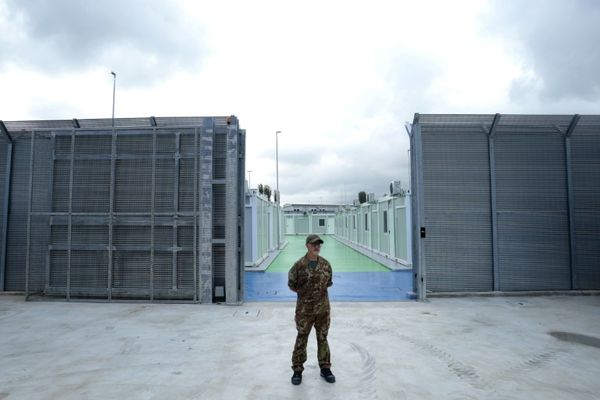
Police helicopters could be replaced with military-grade drones as part of a major tech upgrade across some forces in England and Wales.
Chairwoman of the Association of Police and Crime Commissioners Donna Jones revealed chiefs have been “pushing strongly” for drones to be used as a “viable alternative” to expensive helicopters in Home Office discussions.
All forces currently pay to fund the National Police Air Service at a cost of more than £40 million per year but Ms Jones said on Wednesday that around a third wanted to use drones instead.
“I think that drones have a part to play in the replacement of the National Police Service in the future potentially. These helicopters are incredibly expensive,” she revealed at a policing conference in London on Wednesday.
“Drones are much quicker. They’re much more agile. The technology now is improving incredibly, and police and crime commissioners have been pushing strongly to the Home Office that drones should be a very viable alternative.”
However, she conceded aviation laws would have to be changed for drones to be deployed, with new rules to allow the use of military-style drones that are allowed to fly higher with the pilot positioned a greater distance away.
Currently, the quadcopter-style drones used by police require the pilot to be within 300 to 500 metres of the device, although the cameras can zoom in from up to three miles away.
Police and Crime Commissioner for Hampshire Donna Jones (Andrew Matthews/PA)— (PA Archive)
Ms Jones said: “But the military ones are superb. They are much more capable, can go much higher. And of course that does make them very useful for covert policing, as well.
“So we have made representation through the APCC to the home office on this and the policing minister is aware, and we will have ongoing discussions that could potentially save tens of millions of pounds.”
She estimated that it could take more than two years for progress to be made on the plans.
The drones that would potentially be used look more like miniature aircraft than the ones currently in use by police.
Police chief scientific advisor Paul Taylor insisted police helicopters have not “had their day” but said drones could be part of a suite of options to help forces respond quickly to incidents.
It comes as the National Police Chiefs Council announced it is launching a new dedicated Science and Technology Committee, with cutting edge advancements likely to transform policing in the coming years.
A revolutionary digital fingerprint recognition will enable police to identify suspects from fingerprint traces in real-time at crime scenes, with the tech speeding up the process by three days per case on average.
While advanced facial recognition technology will transform investigation to a similar level as DNA did, the NPCC claims. It comes after a South Wales Police study found that retrospective facial recognition takes minutes to identify a suspect, rather than 14-days on average without it.
Addressing a summit of police chiefs on Wednesday, Chief Constable Gavin Stephens said: “I believe that science and technology will be the single biggest driver of reform in policing in the coming years. The pace is awe-inspiring, daunting, and exciting all at the same time.
“As the use of technology increasingly benefits society, it also benefits criminals and those who wish to do harm to our communities. Policing cannot stand still as technology evolves. If we do, our effectiveness in keeping people safe will be quickly eroded.
“Innovation and all that it brings quite simply enables our workforce to do their jobs better. We must push the boundaries of innovation; to be more agile, ensure early adoption and where proven to work, have the capability to quickly scale up nationally.”







